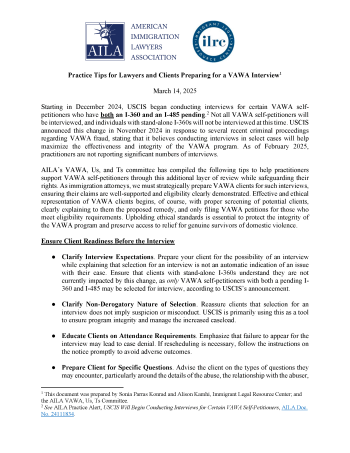Este seminario web gratuito brindará a los defensores comunitarios la información que necesitan para ayudar a los padres inmigrantes a elaborar un plan de cuidado infantil si no pueden cuidar a sus hijos debido a la detención o deportación.
This free webinar will equip immigration advocates with the information they need to help immigrant parents make a childcare plan if they are unable to care for their children due to detention or deportation.
In this webinar we will first provide general tips for conducting a Know Your Rights (KYR) presentation and then conduct a sample presentation covering the rights that all individuals have, regardless of status, and what they can do to proactively prepare and protect themselves and their families.
The Trump Administration is rapidly expanding the 287(g) immigration enforcement program. This program worsens police discrimination and increases the risk of arrest, detention, and deportation for immigrants living in or traveling in places that participate in the 287(g) program.

Starting in December 2024, USCIS began conducting interviews for certain VAWA self-petitioners who have both an I-360 and an I-485 pending. ILRC and AILA’s VAWA, Us, and Ts committee compiled tips to help practitioners support VAWA self-petitioners through this additional layer of review while safeguarding their rights.